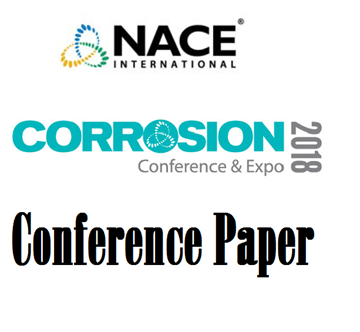Search
51318-11429-Formation of strong acids in dense phase CO2
Also Purchased
11070 Transport of Dense Phase CO2 in C-Steel Pipelines – When is Corrosion an Issue?
Product Number:
51300-11070-SG
ISBN:
11070 2011 CP
Publication Date:
2011
$20.00
51313-02785-Dense Phase CO2 Corrosion and the Impact of Depressurization and Accumulation of Impurities
Product Number:
51313-02785-SG
ISBN:
02785 2013 CP
Publication Date:
2013
$20.00
51318-11481-Impacts of Impurities SO2 and H2S on Corrosion of sc-CO2 Pipe Steels
Product Number:
51318-11481-SG
Publication Date:
2018
$20.00
Recently viewed




